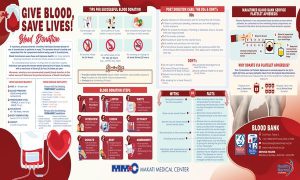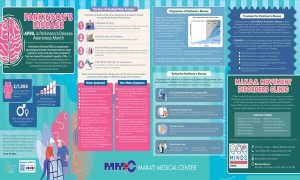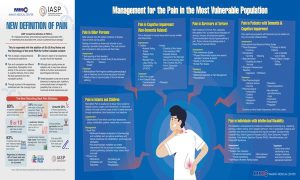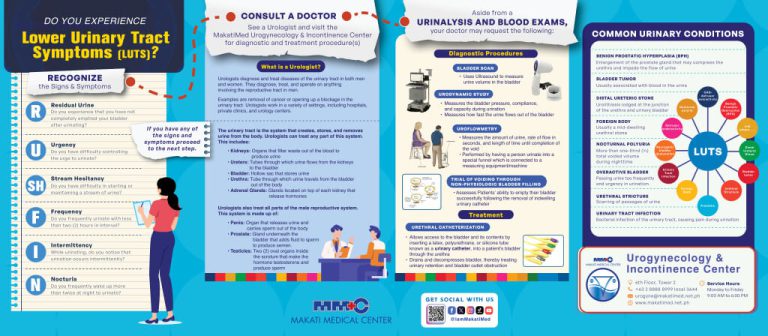Polycystic Ovary Syndrome, or PCOS, is a common yet complex hormonal disorder that affects millions of women in the Philippines. One thing those with PCOS know too well is how it changes the body. For some, going through it feels like turning into a new person, getting a new body that feels foreign. It mainly affects reproductive health like impacting menstruation and fertility and increasing the risk of miscarriage. PCOS can also result in hormonal problems like hyperandrogenism causing acne and abnormal hair growth and mental health issues like anxiety and depression.
Several celebrities have even shared their experiences with PCOS. Daisy Ridley, known for her role in Star Wars, revealed how PCOS contributed to severe acne and complications from endometriosis. Lea Michele, of Glee fame, detailed her struggles with fertility and later suffered a “scary” pregnancy. In the Philippines, actor and beauty queen Winwyn Marquez talked about her challenges with PCOS-related weight gain and mood swings, while actor and director Bela Padilla shared that the condition (and her hypothyroidism) led to constant acne flare ups.
Margaret Joyce Cristi-Limson, MD, an OB-Gyn at Makati Medical Center (MakatiMed), shares that PCOS doesn’t have to feel like a dead end, despite its complex symptoms and effects on the body. The first thing to know about PCOS is that it is a metabolic disease linked to hormonal imbalance and can coexist with other problems related to the endocrine system like thyroid dysfunctions.
“PCOS occurs when there’s a high amount of androgen, or male sex hormones, in a woman’s body,” Dr. Cristi-Limson explains. “To diagnose PCOS, we look for three key criteria: irregular menstrual cycles, symptoms of hyperandrogenism like acne or excessive body hair or the thinning of hair, and the presence of multiple follicles in the ovaries, often more than 20. For a patient to be diagnosed with PCOS, she must fulfill at least two out of the three.”
Managing PCOS with diet and exercise
While the manifestations of PCOS can affect one’s life, they can be controlled through lifestyle modifications, says Dr. Cristi-Limson. Although the exact cause of PCOS is unknown, research has shown that it’s linked to higher insulin resistance. Diet and exercise therefore play a central role in managing insulin resistance and even improving overall hormonal balance in women with PCOS.
“Especially for the overweight and obese, a 5% to 10% weight loss in about six (6) months may completely reverse all PCOS symptoms,” says Dr. Cristi-Limson.
According to PCOS Awareness Association, it’s best to include foods high in fiber and avoid those with sucrose, dextrose, and high fructose corn syrup to manage blood sugar levels. It’s also recommended to exercise up to 150 minutes per week and add the likes of meditation and yoga to help in reducing stress.
Medications for PCOS patients
Medications are also available to help alleviate specific symptoms of PCOS. “Combined oral contraceptive pills are frequently prescribed to regulate menstrual cycles and reduce androgen levels in the body,” Dr. Cristi-Limson notes.
“Pills can be given long-term as long as they’re monitored,” the doctor adds, but they are often tailored to the patient’s needs. For instance, a woman trying to conceive should stop taking contraceptives to allow for ovulation.
If you want to increase your chances of getting pregnant even with PCOS, Dr. Cristi-Limson shares that there are ovulation-inducing drugs available. These medications boost the number of eggs that mature in a single cycle, thereby enhancing the chances of conception.
The role of a good doctor-patient relationship
Dr. Cristi-Limson points out that managing PCOS will also require a working relationship with your doctor. After all, management and treatment will always start with understanding your specific concerns and goals.
“Patients will want to get to the bottom of issues like irregular menses, hyperandrogenism, and infertility,” says the doctor, factoring in underlying conditions like hypertension, high cholesterol, diabetes in the treatment process. “It’s always personalized after that. For example, do we ask patients to stay on pills forever? No, treatment gets recalibrated after they’ve achieved their goals like losing a certain amount of weight.”
Dr. Cristi-Limson emphasizes that PCOS should be seen as a lifestyle issue as it can eventually increase the risk of other diseases and even certain cancers like Endometrial Cancer and Breast Cancer.
“Now the truth is, if I’m managing a patient with PCOS, eventually I don’t really mind how the ovaries look like. It will depend on how the patient is clinically,” the doctor emphasized. “The patient has to be healthy.”
Hollywood celebrities Ridley and Michele and local stars like Marquez and Padilla have all found ways to live well even with their symptoms. Ridley worked with a dermatologist and reduced her dairy and sugar intake, while Michele eventually gave birth to a healthy baby boy—with a baby girl on the way. Marquez also kept track of her health and diet, while Padilla managed her PCOS-related acne with a tailored skincare routine.
By adopting a comprehensive approach that includes lifestyle changes, medication, and regular monitoring, women with PCOS can effectively manage their symptoms and improve their overall health. With proper guidance from a doctor, they can lead fulfilling lives, free from the many complications associated with the condition.
Article based on the Doctors on TV guesting of Margaret Joyce Cristi-Limson, MD last January 7, 2024.
For the complete list of Makati Medical Center’s Obstetrics and Gynecology Specialists, click here. You may also reach us via MakatiMed On-Call at (+632) 8888 8999 or at [email protected].
Follow our social media pages for more health-related content and for the latest updates: https://www.makatimed.net.ph/social-media-pages/














